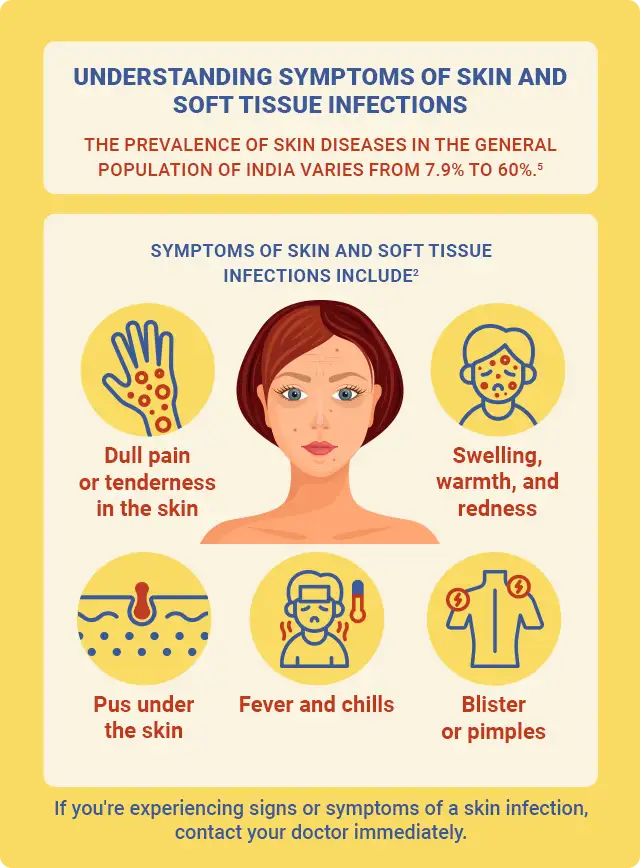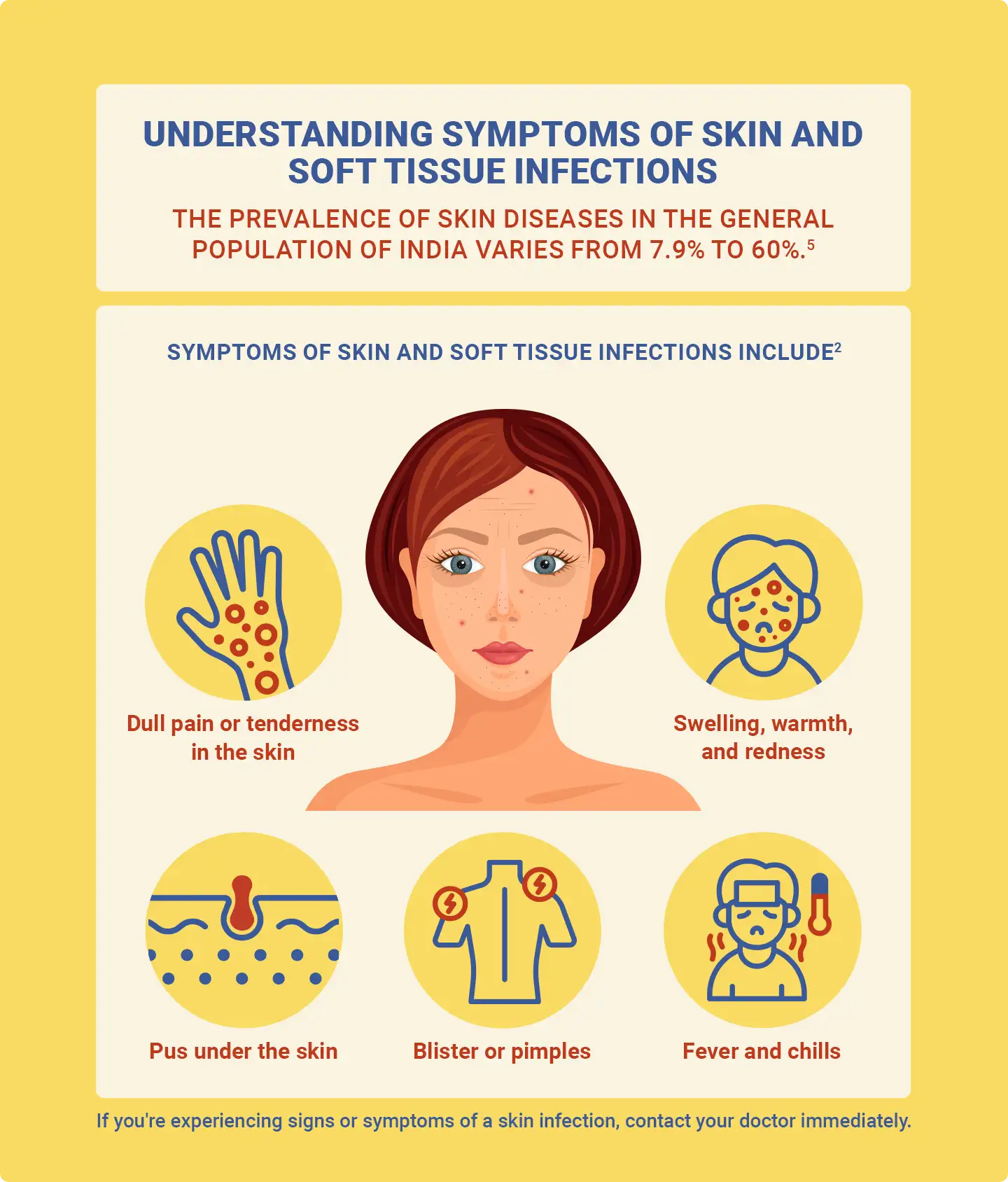Skin & Soft Tissue Infections
4 min read
Understanding Skin and Soft Tissue Infections
Skin and soft tissue infections (SSTIs) are defined as bacterial infections of the skin, muscles, and connective tissue such as ligaments and tendons.1
Common SSTIs consists of:1
- Abscesses
- Cellulitis
- Folliculitis
- MRSA (methicillin-resistant staphylococcus aureus)
- Staph infection (Staphylococcus aureus)
Skin infection risk factors2
- Recent injury to the skin (a wound, abrasion, cut, shaving, or injection drug use)
- Prior radiation therapy to the area
- A fungal or viral skin infection, such as athlete's foot or chickenpox
- Fluid retention (edema) brought on by poor circulation, heart failure, liver illness, or previous lymph node removal
- Being overweight
- Chronic skin conditions, such as eczema or dermatitis
Symptoms2
- Dull pain or tenderness in the skin
- Swelling, warmth, and redness
- Pus under the skin
- Blister or pimples
- Fever and chills
How to prevent the spread of skin infection?3
- Keep your hands clean
- Till they are healed, keep cuts clean and protect them with a suitable dressing or bandage
- Avoid touching anything that has been contaminated by a wound or the wounds of others
- Avoid sharing personal items such as razors, towels, toothbrushes, water bottles
- Equipment for the gym and sports should be cleaned both before and after usage
- After participating in sports or working out in a gym, take a quick shower with soap and water
- With hot water and laundry detergent, wash dirty clothing, linens, and towels
- Instead of letting your clothing air dry, dry them in a hot dryer
- Do not share medications with anyone else
5 Nutrients that Benefit your Skin4

Omega-3 fatty acids
Helps improve cholesterol and battle inflammation. Target choices include fish, chia seeds, flax seeds, walnuts, and almonds
1

Foods that are good sources of vitamin E
Vitamin E is an antioxidant that can help avoid cell damage. Target choice includes almonds and sunflower seeds
4


Show References



